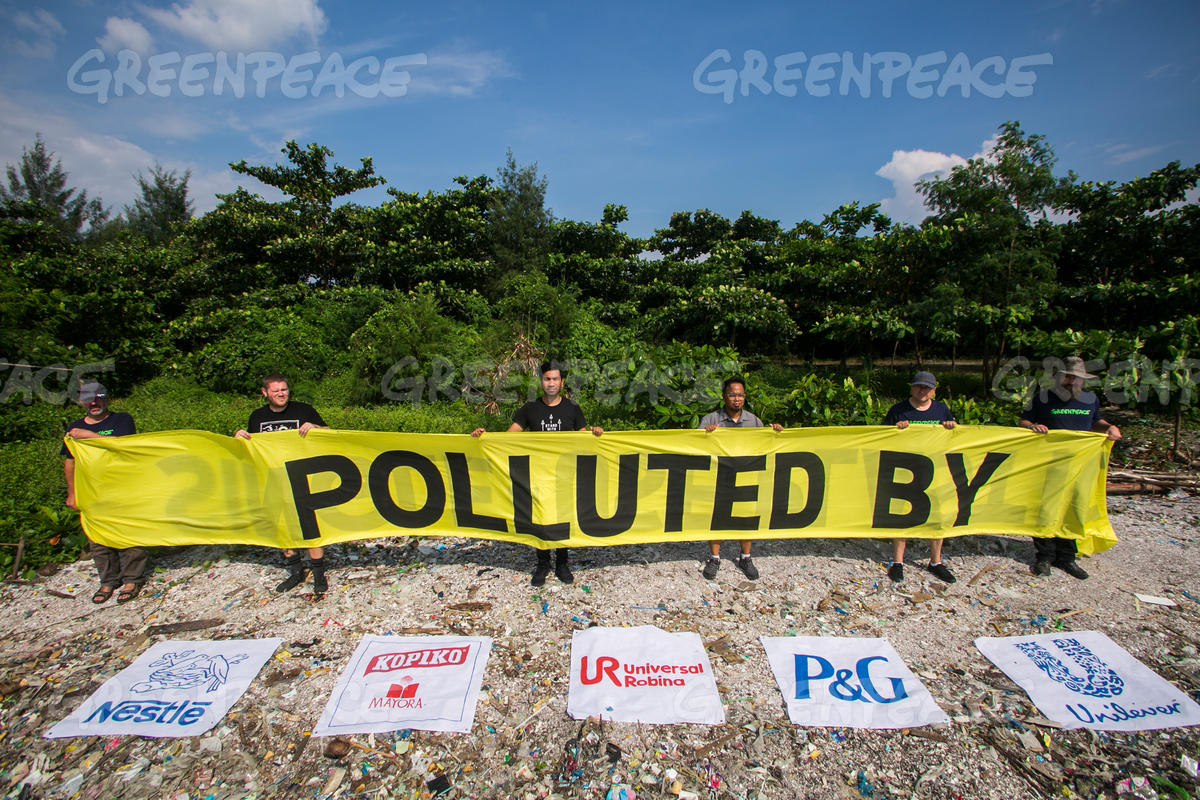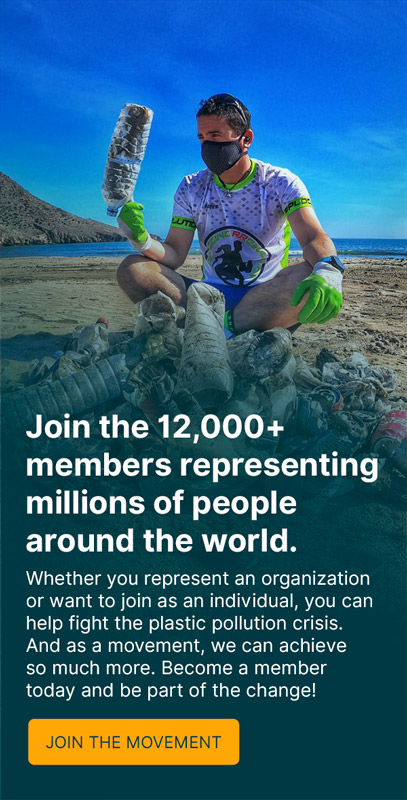Washington, DC – New data collected through cleanups and brand audits confirms that some of the world’s largest corporations — including Coca-Cola, Unilever, Nestlé, and Procter & Gamble — are top contributors to single-use plastic pollution worldwide. With the G7 set to release a plastics charter on World Oceans Day this week, the Break Free From Plastic movement is demanding the world’s largest economies and companies do more to stem the tide of the throwaway plastic choking our oceans, waterways, and communities.
“It’s time for the world’s largest governments and companies to recognise that we cannot recycle our way out of this problem. They must put a stop to plastic pollution before it’s too late,” said Greenpeace plastics campaigner Graham Forbes. “All over the world, people are fighting plastic pollution at the community level, but the crisis we’re facing requires comprehensive regulation and corporate action to immediately move away from single-use plastics.”
Break Free From Plastic member organisation GAIA (Global Alliance for Incinerator Alternatives) led cleanups and brand audits ahead of World Environment Day (June 5) to document branded plastic pollution at key cities throughout India, identifying PepsiCo India, Perfetti van Melle, and Hindustan Unilever as the worst multinational polluters.
Greenpeace Africa led cleanups and brand audits throughout Senegal, South Africa, Kenya, Cameroon, and the Democratic Republic of the Congo on Earth Day, identifying Coca-Cola as the worst polluter.
The results of brand audits conducted in five cities in the Philippines were released on June 1, with five of the ten most polluting companies also among the top polluters in a2017 Freedom Island audit of ocean pollution. Those companies include Unilever, Nestlé, Procter & Gamble, Colgate-Palmolive, and PT Torabika Eka Semesta. Coca-Cola was also a top polluter in the new audit.
“The results of our recent brand audits have underscored the central role that companies play in the plastic pollution crisis,” said Froilan Grate, GAIA Asia Pacific Regional Coordinator and Executive Director of GAIA Philippines. “These companies cannot continue to churn out disposable packaging for their products and expect people to clean up their mess later. Corporations need to own up to this problem and stop drowning the planet in plastic.”
The Break Free From Plastic movement — representing more than 1,200 groups around the world — is calling for G7 countries to pass binding reduction targets and bans on single-use plastics, invest in new product delivery models based on reuse, and hold polluting corporations accountable.
In recent months, McDonald’s, Starbucks, Procter & Gamble, Nestlé, Coca-Cola, PepsiCoand Unilever all published statements or plans addressing the plastic pollution crisis they contribute to, but none of the companies included significant actions to reduce their production of plastic.
People are taking action worldwide to fill the void left by corporations. Recent examples include:
- Ullapool, a Scottish village, went plastic-free after school children banded together to speak with business owners and staff about the issue.
- A group of citizens from Veracruz, Mexico effectively lobbied for a ban on plastic bags and straws in their state.
- After a two-month advocacy effort by Greenpeace activists and groups like Wild at Heart, the Taipei City Government committed to multiple measures to reduce single-use plasticsat the Taipei City Marathon.
- Following a Greenpeace Italy assessment of microplastic pollution revealing the Tremiti islands as the second most polluted sampling site, the islands announced a ban on single-use plastic cups, plates, utensils, and straws.
ENDS
Notes:
In May, the European Union Commission took steps to reduce plastic pollution. Their legislative proposal includes bans on certain single-use plastic items, and subjects others to Extended Producer Responsibility whereby the producers of certain single-use items must contribute to the cost of collection, treatment and clean up. The proposal also requires 90% collection of plastic bottles by 2025, and for EU countries to set significant consumption reduction targets.
This weekend, thousands of individuals will gather in Washington, DC, 60 locations across the United States, and in 23 countries to March for the Ocean. The march will focus on offshore oil drilling, ending plastic pollution, and protecting our coastlines.
Photo and video:
For photos of actions against single-use plastics around the globe, click here.
For a wide photo and video collection of ocean plastic pollution, click here.
For a Break Free From Plastic video explaining brand audits, click here.
Media contacts:
Perry Wheeler, Senior Communications Specialist, Greenpeace USA: +1 (301) 675 8766, perry.wheeler@greenpeace.org
Greenpeace International Press Desk: +31 20 718 2470, pressdesk.int@greenpeace.org(available 24 hours)
Post by Greenpeace International which originally appeared here https://www.greenpeace.org/international/press-release/16830/activists-call-on-g7-and-corporations-to-end-plastic-pollution-crisis/



